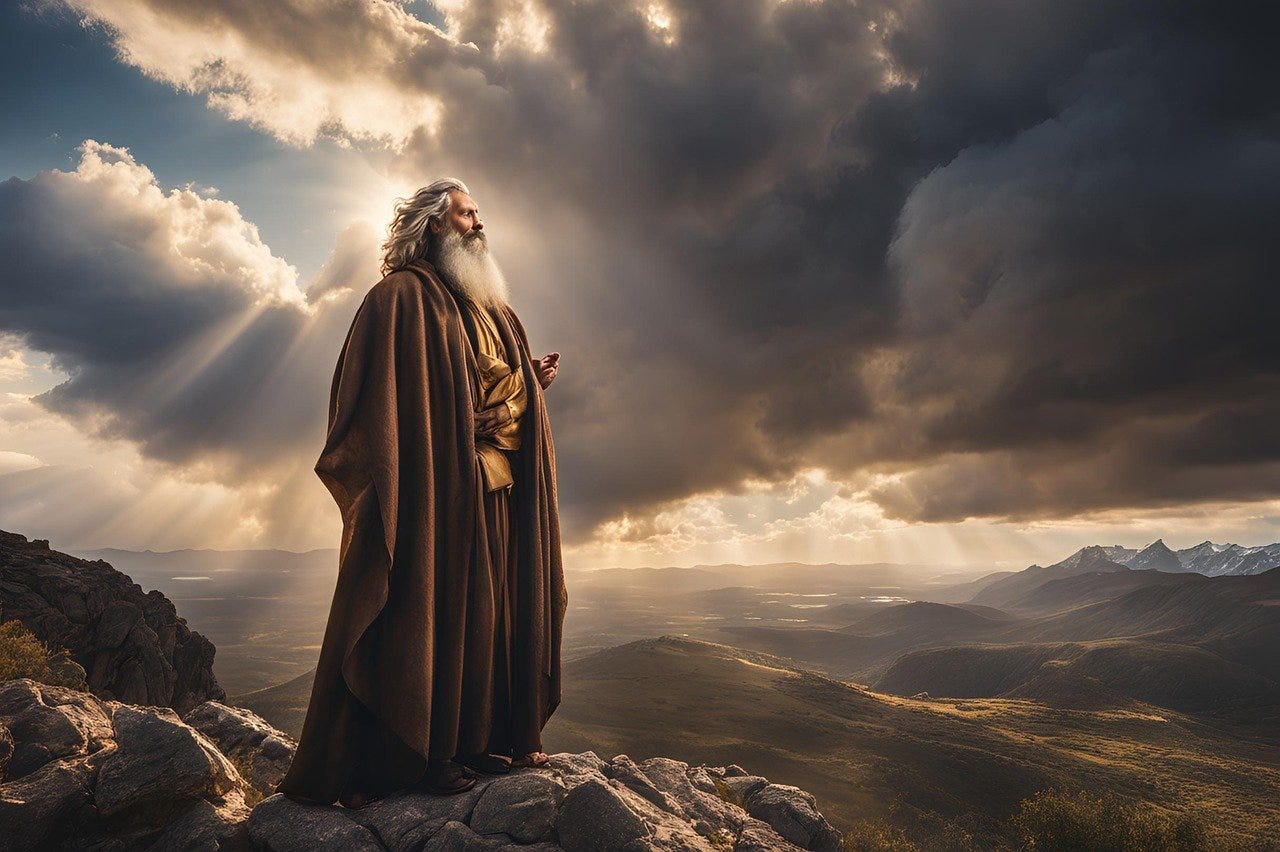The spirit of Elijah returns to Israel in the person of John the Baptist. The need for metanoia — a turning of the whole person to God — is still there. But “they did not recognize him but did to him whatever they pleased.” Deja vu all over again.
Memorial of Saint John of the Cross, Priest and Doctor of the Church
Sirach 48:1-4, 9-11
Matthew 17:9-13
The main person in today’s readings seems to be the Old Testament Prophet Elijah. But this is the middle of Advent and you have to wonder why our attention should be directed toward him. A few of the Prophets get lots of press. They are called the major prophets. Isaiah, Jeremiah, Ezekiel and Daniel are listed in this group while all others are referred to as minor prophets. The designation is not given because of the magnitude of their works or the minimal influence of their works. Rather they are called major and minor because of the size of their writings.
Elijah didn’t write anything, at least not anything that was recorded. Consequently, he is almost seen as a non-entity when people talk about the Old Testament prophets. Yet, Elijah should probably be considered among the greatest of the prophets. If we review his life we may see why.
Image by Djane Daviss
When King Solomon died his kingdom was left in turmoil. The united nation of David and Solomon split into the two kingdoms of Israel and Judah. In his later years Solomon had not been true to the Covenant with God; and that inconstancy would persist throughout the next few hundred years. A’hab rose to the throne of Israel around 875 BC.; and it was about this time that Elijah first appears in the Old Testament text.
“A’hab did more to provoke the LORD, the God of Israel, to anger than all the kings of Israel who were before him.” (1 Kings 16:33)
Elijah warns him of his errors; and, when nothing changes, Elijah prays and a sever drought begins throughout the land. It lasts for two years until Elijah prays again, this time for the return of rain upon the land.
He triumphs over the four hundred prophets of Baal in a contest of sacrifice. The false prophets are then executed.
He is fed by an angel as he flees the angry King A’hab.
He accurately pronounces divine judgment upon A’hab and his house.
He calls down God’s punishment on the king’s soldiers who try to seize him.
He is taken up to Heaven in a whirlwind.
His notoriety endures even to the time of Jesus as evidenced in the Gospel reading.
So, what does Elijah have to do with us?
Different solutions to this question can be proposed; but the thrust of the Responsorial Psalm would suggest that the answer lies in the prayer of these verses:
Take care of this vine,
protect what your right hand has planted
the son of man whom you yourself made strong.
May your help be with the man of your right hand,
with the son of man whom you yourself made strong.
give us new life.
If you read the full text about the Prophet Elijah as it is recorded in the book of Kings you will see that time and again God provides this ‘man of his right hand’ the protection needed to complete his prophetic mission. Most often this is in response to Elijah’s prayer. God does what the Prophet asks because that is what the Prophet needs.
The story might appear different when we turn to the Gospel. The spirit of Elijah returns to Israel in the person of John the Baptist. The need for metanoia — a turning of the whole person to God — is still there. But “they did not recognize him but did to him whatever they pleased.” Deja vu all over again. And it would seem that God’s protection was not with John. Not so! As with Elijah, John had a purpose and a mission. “For this is he who was spoken of by the prophet Isaiah when he said, ‘The voice of one crying in the wilderness: Prepare the way of the Lord,make his paths straight."’ (Matthew 3:3) Both of these prophets fulfilled their purpose and mission though the results were poorly seen in the lives of those in charge. And for both, God’s protection was there as long as needed; and when the time came the went to the Lord.
So why bring this up in Advent?
The need, the need for change, is still there. Those who speak in the Lord’s name are still around, still ignored and still protected.
Maybe we should listen.






